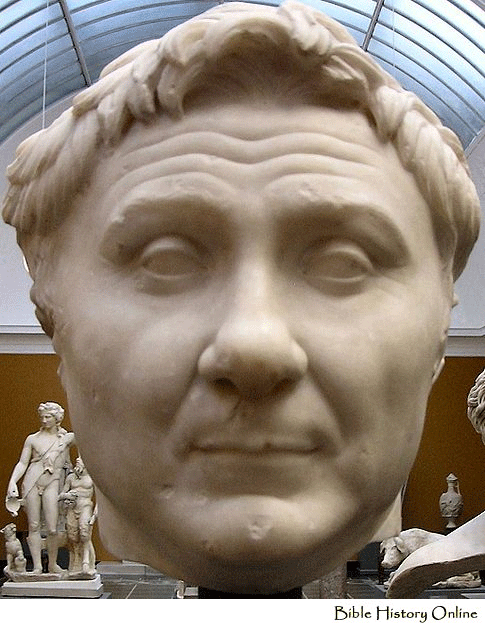
Pompey was a military genius and his soldiers recognized this and referred to him as “Magnus” which means the great, thus the name Gnaeus Pompeius Magnus.
Source:

Pompey was a military genius and his soldiers recognized this and referred to him as “Magnus” which means the great, thus the name Gnaeus Pompeius Magnus.
Source:
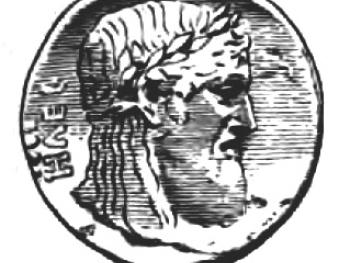
In Christianity, Jesus is the One true God who came to earth clothed in human flesh. In Greek and Roman mythology Zeus (Jupiter) was a celestial deity, and one of many gods. Zeus was the chief of the gods of Olympus, and he was the son of Saturn and ...
The Western Wall, also known as the Wailing Wall or Kotel, is a significant religious site in Jerusalem, Israel. It is a section of the retaining wall that once surrounded the Second Temple's courtyard and is revered as the most sacred site for Jewis...
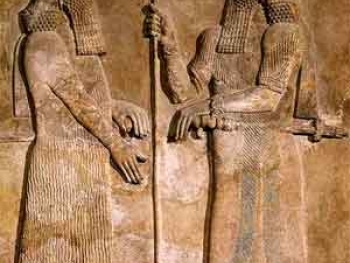
Scholars recognize that the primary sources for the study of ancient Assyria are the Assyrian Annals, the Assyrian Chronicles and Eponym Canon, The Assyrian King List, Assyrian Sculptures, and the Bible. The Assyrian Annals. The scribes of the chief ...
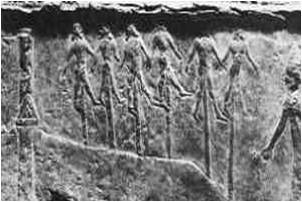
History records that the Assyrians were ruthless to any enemy that tried to withstand them. One inscription from an Assyrian King Tiglath-Pileser records: “I built a wall before the great gates of the city; I flayed the chief men of the rebels, and...
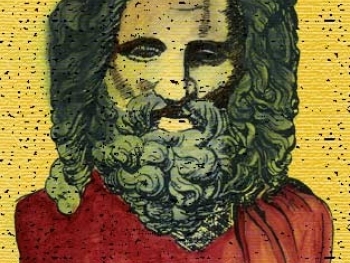
In ancient Roman religion, Jupiter was the chief of the gods. The name “Jupiter” means “the best and greatest” (Optimus Maximus). He was identified with the Greek god Zeus. Jupiter was the spirit of the sky and worshiped as the god of thunder...
The fall of the Roman Empire was a complex event with multiple contributing factors. Some of the main causes include: Internal Decay and Political Instability: The empire faced a decline in effective leadership, political instability, and corruption ...
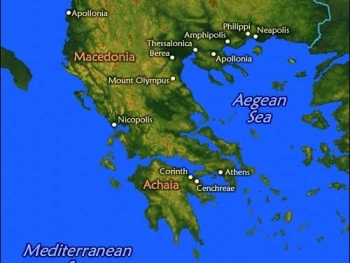
The people of ancient Greece developed unique characteristics because of the topography of their country. The coastline curved inward very peculiarly, causing the bays to become very prominent, and stretching far out into the Mediterranean Sea. This ...
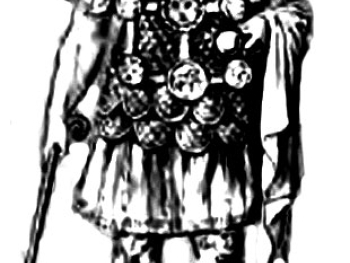
In ancient Rome the “centurion” meant “captain of 100”, and the Roman centurion was captain over 100 foot soldiers in a legion. The centurion was loyal and courageous, beginning as a soldier in the army and working their way up the ranks. The...
In the Bible, the crown of thorns is mentioned in the account of Jesus' crucifixion. Matthew 27:29, Mark 15:17, and John 19:2 describe how the Roman soldiers twisted thorns into a crown and placed it on Jesus' head as a form of mockery and humiliatio...
Hadrian's Arch, also known as the Arch of Hadrian or the Triumphal Arch, is an ancient Roman monument located in Jerash, Jordan. It was erected during the reign of the Roman Emperor Hadrian in the 2nd century CE. While the Bible does not specifically...
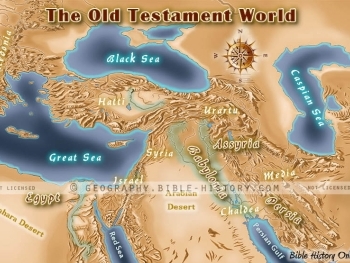
The Black Sea was known in ancient times as the Euxine and in the Roman Empire as Pontus Euxinus, and many ships sailed along its borders. The Black Sea was not mentioned in the Bible, although it was a northern boundary in the Roman Empire and the N...
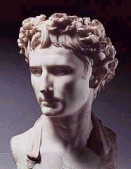
Augustus was born with the name Gaius Octavian on September 23, 63 B.C. His parents were C. Octavius and Atia, a niece of Julius Caesar, by his sister Julia. Source: Augustus Caesar...
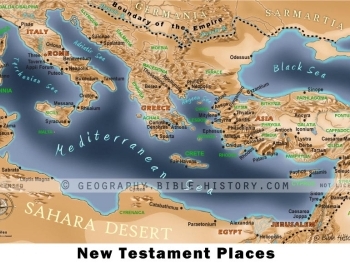
This map reveals the “Nations” within the ancient world during the first century A.D., the time of the New Testament. The New Testament world includes the areas of Israel, Asia, Greece, and Italy. During the life of Jesus his ministry took place ...
The name of Jesus, in its original language, was written in Hebrew as יֵשׁוּעַ (Yeshua) or יְהוֹשֻׁעַ (Yehoshua). In the New Testament, the name appears in Greek as Ἰησοῦς (Iēsous). The specific form used in the Bible depen...
Mesopotamia, mentioned in the Bible, refers to an ancient region located in present-day Iraq and parts of Syria and Turkey. The term "Mesopotamia" means "land between rivers" in Greek, as the region is situated between the Tigris and Euphrates rivers...
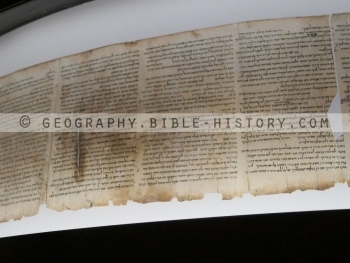
Among the Dead Sea Scrolls discovered in 1947 was found the “Scroll of Isaiah” inside of a clay jar and well preserved, dating to the 2nd century BC. The entire Hebrew text of the prophet Isaiah was found in “perfect” condition. When compared...
The ancient Mayan civilization, renowned for its advanced understanding of astronomy and mathematics, developed a highly sophisticated calendar system that remains a testament to their intellectual prowess. Through intricate observations of celestial...
The main powers in ancient Rome were Carthage, Greece, and Etrura. The Italian Peninsula is located right in the heart of the Mediterranean Sea. Rome is located right in the heart of Italy on a large plain known as Latium. Source: Latium and Geo...
Welcome to Free Bible: Unearthing the Past, Illuminating the Present! Step into a world where ancient history and biblical narratives intertwine, inviting you to explore the rich tapestry of human civilization.
Discover the captivating stories of forgotten empires, delve into the customs and cultures of our ancestors, and witness the remarkable findings unearthed by dedicated archaeologists.
Immerse yourself in a treasure trove of knowledge, where the past comes alive and illuminates our understanding of the present.
Join us on this extraordinary journey through time, where curiosity is rewarded and ancient mysteries await your exploration.




